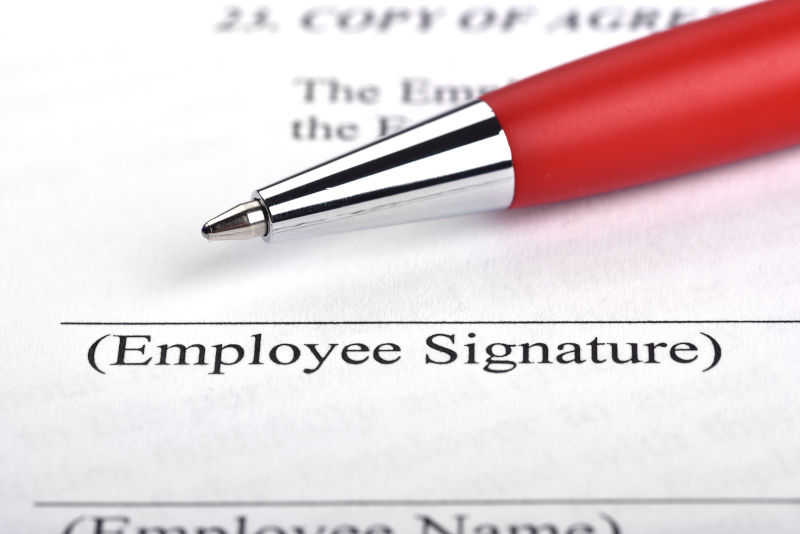Redundancy is a dreaded word that no employee wishes to hear; but depending on your individual circumstances, so long as you know your rights, take good advice and be proactive then you can protect yourself and turn the situation around to become an opportunity. If you have been made redundant, here are 5 things you should do.
-
Know your rights
There are three prime reasons why redundancy occurs: the business closes, your workplace closes or there is a reduced need for employees to do the available work. These situations might arise if the business in which you work suffers a downturn in trade or orders or if there is a business restructure under which roles change. Alternatively, it might be that new technology or methods of working mean your employer needs fewer employees. See our page on Redundancy for more.
Unfair Dismissal
But, if your redundancy doesn’t appear to fall into any of these categories, you may be entitled to bring a claim for unfair dismissal.
To bring a claim for unfair dismissal, you will need to have been employed by your employer for 2 years or more (see our page on Unfair dismissal).
Having unfair dismissal protection means that your employer must show both a fair reason for your dismissal and follow a fair procedure.
Redundancy is a fair reason – so long as it’s the real reason and your employer isn’t using it as an excuse to dismiss you. If your employer makes you redundant and then employs someone else to do your job, then your job isn’t actually “redundant”.
In terms of a fair procedure, you shouldn’t just turn up one day and be made redundant on the spot. Rather, your employer should:
- warn you that redundancy is a possibility;
- where there is more than one employee doing the same role, decide on fair criteria to select who should be made redundant and score employees fairly;
- discuss/consult with you your scores and/or the reason for the redundancy; and
- consider and discuss any alternative employment that is available.
If you do not agree with the reason you have been given for the redundancy, don’t think your scores are right or if you believe you should have been considered for alternative work, you should raise this with your employer as part of the consultation or any appeal process.
Discrimination
All employees, no matter how long they have been employed, are protected against discrimination. If you are made redundant because of a protected characteristic (sex, pregnancy/maternity, race, disability, age, marital status, gender reassignment, religion/belief or sexual orientation) you will have a discrimination claim. See Discrimination claims and Discrimination on grounds of belief – 6 tests to meet.
Your employer must also not behave in a discriminatory way in terms of how you are selected for redundancy. For example, if pregnancy or disability-related illness results in you being given a low score and losing your job, you could have a claim. See Maternity, paternity and shared parental leave – your rights.
Notice and holiday
You are also entitled to a notice period (or payment to represent this – i.e. payment in lieu) before your employment ends. This will be one week’s notice for each year of employment up to a maximum of 12 weeks or what your employment contract says (whichever is the higher). So, work out what your minimum notice period should be based on how long you have been employed, check your contract and make sure you are being given the right amount (see wrongful dismissal).
You should also be paid for any holiday that you have built up that year but not taken.
-
Are you getting the correct redundancy payment?
You are entitled to a statutory redundancy payment if you have worked for the organisation for two years of more. The statutory payment is:
- Half a week’s pay for each full year of service under the age of 22
- 1 week’s pay for each full year of service between the age of 22 and 41
- 1.5 weeks’ pay for each full year of service aged over 41
A week’s pay is capped at a certain amount that usually increases each April. It is currently £489. If you earn less than this, your redundancy payment will be based on your actual weekly pay. Anything you earn above the cap will not be taken into account. In addition, a statutory redundancy payment can only be based on up to 20 years of employment even if you have been employed for longer than this.
Some employers pay more than this. If this is set out in your contract of employment you should be paid the higher amount. An employer hoping employees will volunteer for redundancy might also offer a higher payment. If you are interested in volunteering for redundancy and your employer hasn’t mentioned what the redundancy payment will be, ask if they will pay more – this is often referred to as an enhanced redundancy payment.
-
Look into your benefits
To offset any financial difficulties while out of work you should ensure you claim any benefits you are entitled to. You may also be able to claim for council tax and housing costs. Benefits may be dependent on what savings you have.
-
Get your finances in order
Naturally, if you need to, you should immediately seek to cut down your spending to essential expenditure only and it’s sensible to speak to your mortgage provider to inform them of the situation. You are likely to be treated more favourably if you do have problems paying your mortgage if you do this before the problems arise and the lender may allow you a break in payments or switch you temporarily to an interest-only mortgage.
You should also get advice on any company pension you have and whether you can remain with the same provider, add a lump sum from your redundancy payment or transfer your money to a new scheme. If your employer provided life insurance, medical insurance or critical illness cover, you might want to look into replacing these policies in due course.
-
Look for a new job
For some people redundancy can be a merciful release from a job they felt trapped in, but usually looking for a new job is not something you envisaged doing. You should attempt to think positively, get your CV in order, ask for references from your previous employer and treat the situation as an opportunity. If you find work quickly, your redundancy payment can become a nice little nest egg, and that should be your motivation.
Time to speak to a solicitor
If you are in the middle of a redundancy situation and are unclear on what you should do, or if you have been made redundant and do not think you should have been, you need expert advice. Speak to a specialist in employment law to help guide you through the process. An employment specialist will be able to advise you on your next steps. For advice contact us here.
Further Reading
From one of the UK’s most read legal blogs.











